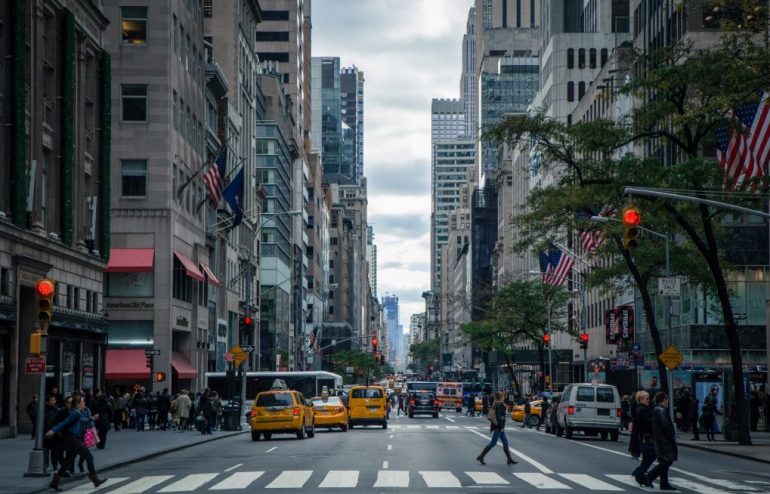A REVIEW OF THE IMPLICATIONS OF THE TRAVEL BAN IMPOSED ON NIGERIA BY THE UNITED STATES OF AMERICA
The United States of America (USA) recently imposed a travel ban on Nigeria by expanding the list of countries restricted from obtaining certain types of visas. The ban takes effect on February 21, 2020.
Burma (Myanmar), Eritrea, Kyrgyzstan, Nigeria, Sudan and Tanzania were added to the initial list of seven countries under the travel ban on account of certain deficiencies that position them as countries that pose a high degree of security risk to the USA.
Nigeria’s inclusion on the list was met with great surprise particularly in light of the moves made to promote mutually beneficial trade and commercial ties between African countries and the USA.[1] The USA is one of Nigeria’s main trading partners and has remained an ally of the USA in the fight against terrorism.
The following was cited as the reason for Nigeria’s inclusion on the list:
“Nigeria does not comply with the established identity-management and information-sharing criteria assessed by the performance metrics. Nigeria does not adequately share public-safety and terrorism-related information, which is necessary for the protection of the national security and public safety of the United States. Nigeria also presents a high risk, relative to other countries in the world, of terrorist travel to the United States. Nigeria is an important strategic partner in the global fight against terrorism, and the United States continues to engage with Nigeria on these and other issues. The Department of State has provided significant assistance to Nigeria as it modernizes its border management capabilities, and the Government of Nigeria recognizes the importance of improving its information sharing with the United States. Nevertheless, these investments have not yet resulted in sufficient improvements in Nigeria’s information sharing with the United States for border and immigration screening and vetting.”
From the foregoing, the USA has expressed its concerns over Nigeria’s non-compliance with information sharing practices and the possibility of the export of terrorism into the country.
Level of restriction and its implications
The level of restriction to be faced by Nigerian visa applicants was stated in the Proclamation as follows:
“The entry into the United States of nationals of Nigeria as immigrants, except as Special Immigrants whose eligibility is based on having provided assistance to the United States Government, is hereby suspended.”
A proper understanding of this shows that Nigerian nationals are still permitted to apply for visas under non-immigrant visa categories. Therefore, the ban does not apply to those who intend to visit the USA for business, leisure (tourism), education and temporary work.
However, Nigerians seeking to permanently emigrate to the USA will be affected by this ban. This means that green cards cannot be obtained for the purpose of family reunification and employment. Its application is limited to those who are outside the USA on the effective date of the proclamation. It also applies to those who do not have a valid visa on the effective date of the proclamation and do not qualify for a visa or other valid travel document. This means that the ban does not apply to those who are already in the USA and to Special Immigrants whose eligibility is based on having provided assistance to the United States Government.
Exceptions and Waivers
Section 3(b) of Proclamation 9645 provides for exceptions to the applicability of the ban. Under the Proclamation, the following people are exempted:
- Any lawful permanent resident of the USA;
- Any foreign national who is admitted to or paroled into the USA on or after the applicable effective date;
- Any foreign national who has a document other than a visa – such as a transportation letter, an appropriate boarding foil, or an advance parole document – valid on the applicable effective date or issued on any date thereafter, that permits him or her to travel to the USA and seek entry or admission;
- Dual nationals who are not travelling on a passport issued by a country covered by the restriction;
- Any foreign national travelling on a diplomatic or diplomatic-type visa and the like;
- Any foreign national who has been granted asylum by the USA; any refugee already admitted to the USA; or any individual who has been granted withholding of removal, advance parole or protection under the Convention Against Torture.
An application for a waiver of the ban can be sought and such applications would be assessed on an individual basis. Such waivers are granted at the discretion of the consular officer or Customs and Border Protection (CBP) official.
In order for a waiver to be granted, the applicant must prove the following to the satisfaction of the consular officer or CBP official:
- Denial of entry would cause undue hardship;
- Entry would not pose a threat to the national security or public safety of the USA; and
- Entry would be in the national interest.[2]
Remarks
In 2018, the USA issued 7922 immigrant visas to Nigerians and Nigerian immigrants to the USA have made their mark by being among the most educated immigrants in the country.[3] There are indications that the travel ban can be lifted if Nigeria effectively addresses the security issues raised by the USA. The Nigerian government has already pledged to work with the USA to ensure the proper implementation of all the updates necessary to address these issues.[4]
For more information, contact:
GRF Dalley & Partners
Lagos Office:
Gabsdall House (2nd – 4th Floor)
26, Igbosere Road
Port Harcourt Office:
13, Finima Street,
Old G.R.A.
Tel: +23414549824
Fax: +4420 8929 0855
Email: inq@grfdalleyandpartners.com
Website: www.grfdalleyandpartners.com
Follow us on social media:
Twitter: @GRFDALLEY
LinkedIn: /grfdalleyandpartners
[1] https://www.cgdev.org/blog/prosper-africa-promises-double-two-way-trade-and-investment-between-us-and-africa
[2] Section 3(c) of Proclamation 9645
[3] https://www.nytimes.com/2020/02/02/world/africa/trump-travel-ban.html

